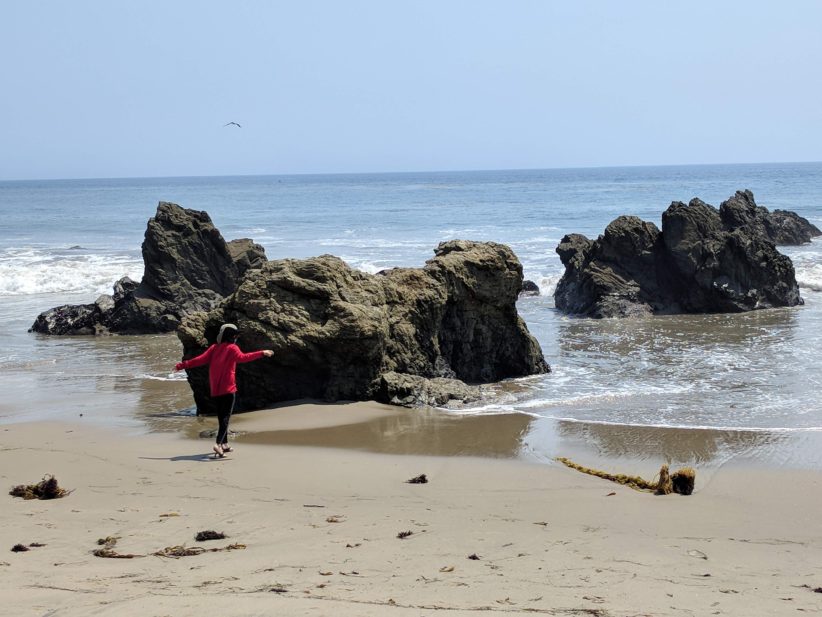One of the awkward parts of being a kid is navigating what type of humor is or is not appropriate when you incompletely grasp the context.
One second your adult audience is rolling in the aisles and you are killing like a comic on the Sunset Strip; the next moment, the muscles in your parents' necks are pulled into taut cords, mouths thin-lipped with grins of disapproval.
Spending more time together as a family means the kids have unwittingly crossed these boundaries more often in the past year. I lose my temper, and I'm not my best self in those moments.
Recalling a formative experience when I was the child who went off the guardrails helps me be more gentle in the correctives I offer them.
Our family revered the actor Michael Landon, and in the carefree days of my youth (when screen time went completely unmonitored) my siblings and I were huge fans of Highway To Heaven, an afternoon TV series where he played the role of an angel wandering small towns in search of people in need of healing.
One night my siblings and I watched an episode where a woman in her 20s was sick and had lost her hair, mentioning that it had to do with something I'd never heard of called "chemotherapy."
Although I was the eldest of three (the fourth was not yet born), we were all too young to follow the thread of the medical jargon. Still, I made a mental note that chemotherapy led to baldness.
That evening, my father arrived home from work for a late family dinner. As he dug into his rice and beans, I teased him about his receding hairline (up until then a subject considered well within the bounds of family humor) by saying, "You must be on chemotherapy, because you're going bald!"
Expecting my punchline would kill, I was surprised to watch my father's demeanor go from stunned to serious, then fearful as the color drained from his face. He shot a concerned look at my mother, then turned back to us. Chemotherapy, he informed us, was no laughing matter.
That night my father trusted his kids with a very adult subject, his medical history. The year before I was born, he had been diagnosed with Non-Hodgkin's Lymphoma.
Like the woman on TV, he had been in his 20s, and had lost all of his hair during treatment. He spent months in the apartment he shared with my mother, sick to his stomach from the chemotherapy and the radiation.
When my mother learned she was pregnant with me shortly after his diagnosis, her doctor told her that her child might not grow up with a father.
I felt like a jerk.
I also felt transformed, more mature.
Learning to assume responsibility for the harm my words caused seemed a painful rite of passage on the way to adulthood.
When my children transgress unknowingly, I try to deliver the lesson (and the blow to their self-regard) the way my father once did to us:
This is a boundary we do not cross.
This is the harm our words cause others.
This is how we learn from our mistakes.
This is how we make things right.
If I'm half the father to them that my own father was to me, I'll consider it a point of pride.

